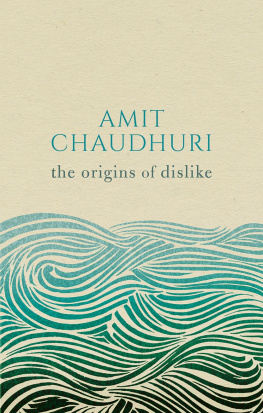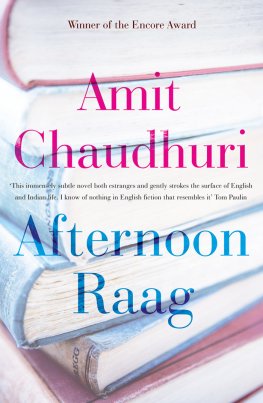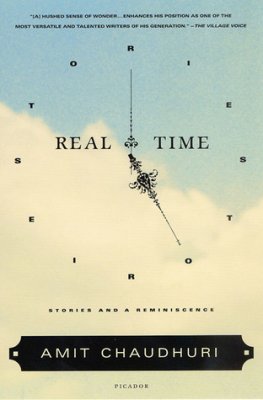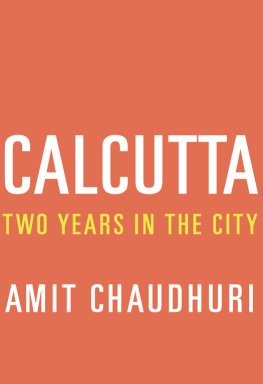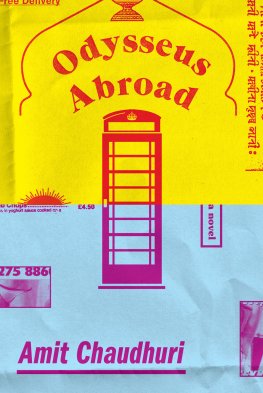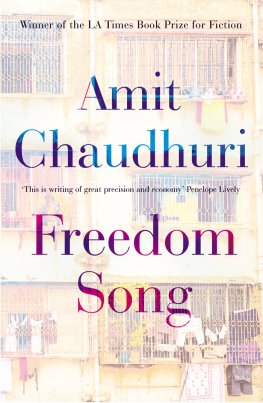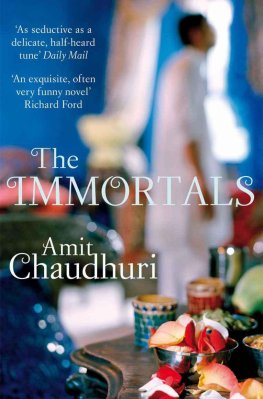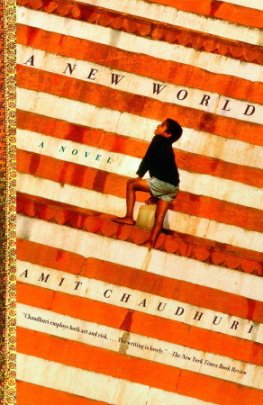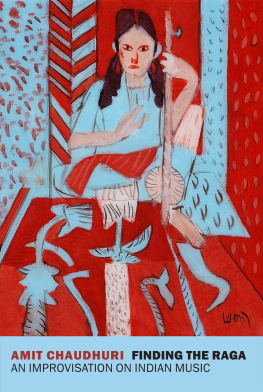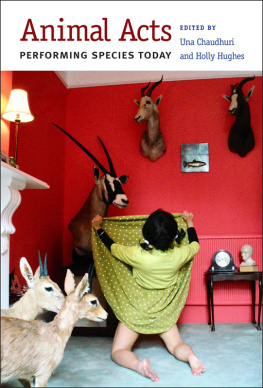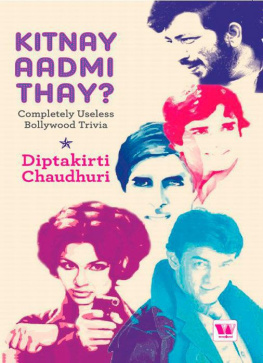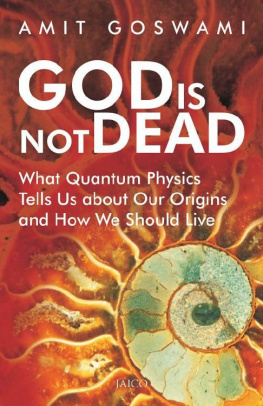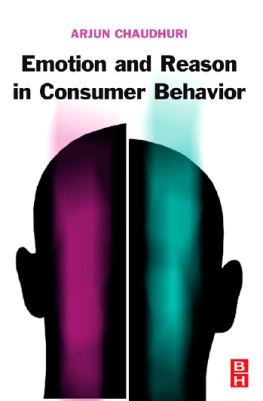Chaudhuri Amit - The Origins of Dislike
Here you can read online Chaudhuri Amit - The Origins of Dislike full text of the book (entire story) in english for free. Download pdf and epub, get meaning, cover and reviews about this ebook. year: 2018, publisher: OxfordUP, genre: Art. Description of the work, (preface) as well as reviews are available. Best literature library LitArk.com created for fans of good reading and offers a wide selection of genres:
Romance novel
Science fiction
Adventure
Detective
Science
History
Home and family
Prose
Art
Politics
Computer
Non-fiction
Religion
Business
Children
Humor
Choose a favorite category and find really read worthwhile books. Enjoy immersion in the world of imagination, feel the emotions of the characters or learn something new for yourself, make an fascinating discovery.
- Book:The Origins of Dislike
- Author:
- Publisher:OxfordUP
- Genre:
- Year:2018
- Rating:3 / 5
- Favourites:Add to favourites
- Your mark:
- 60
- 1
- 2
- 3
- 4
- 5
The Origins of Dislike: summary, description and annotation
We offer to read an annotation, description, summary or preface (depends on what the author of the book "The Origins of Dislike" wrote himself). If you haven't found the necessary information about the book — write in the comments, we will try to find it.
The Origins of Dislike — read online for free the complete book (whole text) full work
Below is the text of the book, divided by pages. System saving the place of the last page read, allows you to conveniently read the book "The Origins of Dislike" online for free, without having to search again every time where you left off. Put a bookmark, and you can go to the page where you finished reading at any time.
Font size:
Interval:
Bookmark:

THE ORIGINS OF DISLIKE
AMIT CHAUDHURI


Great Clarendon Street, Oxford, OX2 6DP, United Kingdom
Oxford University Press is a department of the University of Oxford.
It furthers the Universitys objective of excellence in research, scholarship,
and education by publishing worldwide. Oxford is a registered trade mark of
Oxford University Press in the UK and in certain other countries
Amit Chaudhuri 2018
The moral rights of the author have been asserted
First Edition published in 2018
Impression: 1
All rights reserved. No part of this publication may be reproduced, stored in
a retrieval system, or transmitted, in any form or by any means, without the
prior permission in writing of Oxford University Press, or as expressly permitted
by law, by licence or under terms agreed with the appropriate reprographics
rights organization. Enquiries concerning reproduction outside the scope of the
above should be sent to the Rights Department, Oxford University Press, at the
address above
You must not circulate this work in any other form
and you must impose this same condition on any acquirer
Published in the United States of America by Oxford University Press
198 Madison Avenue, New York, NY 10016, United States of America
British Library Cataloguing in Publication Data
Data available
Library of Congress Control Number: 2018932396
ISBN 9780198793823
ebook ISBN 9780192512604
Printed in Great Britain by
Clays Ltd, St Ives plc
For Tom Paulin
Acknowledgments
I am grateful for permission to reproduce the following materials: Chapter 2, The Piazza and the Car Park and Chapter 19, I am Ramu, originally published in n+1 online. (The Piazza and the Car Park was first presented as The Mehrotra Campaign at the inaugural University of East Anglia symposium on Literary Activism in Calcutta.) Chapter 3, Poetry as Polemic, originally published as the Introduction to The Essential Tagore (Harvard University Press, 2011) and Guernica. Chapter 5, The Other Green, originally published as the Introduction to Party Going by Henry Green, NYRB Classics and TheGuardian. Chapter 6, On the Gita: Krishna as Poetic Language, originally published as the Introduction in The Folio Society edition of The Bhagavad Gita, 2011 and the Times Literary Supplement. Chapter 7, The Alien Face of Cosmopolitanism, originally published in New Left Review. Chapter 8, Qatrina and the Books, originally published in London Review of Books. Chapter 10, The Photographer as Onlooker, originally published in MET Catalogue, New York. Chapter 11, The Sideways Movement, originally published in Caravan, 1 September 2012. Chapter 13, Un-machinelike, originally published in Telegraph, India. Chapter 14, Nissim Ezekiel: Poet of a Minor Literature, originally published in A History of Indian Poetry in English (Cambridge University Press, 2016). Chapter 18, On the Paragraph, originally published in Granta. At the time of writing this, Starting from Scratch: Buddhadeva Bose and the English Language is to appear as the preface to An Acre of Green Grass and Other English Writings by Buddhadeva Bose, due from Oxford University Press in 2018.
I am grateful to the editors of all these publications.
The Origins of Dislike was first presented as a talk at the South Asia Initiative at Harvard University in 2010, and then at Yale and Warwick Universities. What We Do: Deprofessionalization and Legitimacy was first presented in 2016 at the India International Centre, Delhi as part of the University of East Anglia symposium on Deprofessionalization. Ray and Ghatak and other Filmmaking Pairs: The Structure of Asian Modernity was the Satyajit Memorial Lecture at the Nehru Centre, London, in 2009. The Emergence of the Everyday: Kipling, Tagore, and Indian Regional Writing was the John Coffin Memorial Lecture at London University, 2011, and later a public lecture at Smith College and New York University. Unconstitutional Spaces was a keynote address at the Crafts of World Literature conference at Oxford University, 2012. Possible, Not Alternative, Histories: A Literary History Emerging from Sunlight was first presented at the University of East Anglia symposium on Reassessments at Presidency University, Calcutta, and then at Kings College, London, 2017.
Although some of these talks were given at academic venues, their aim was to explore a style of discussion that isnt, strictly speaking, academic. This is in keeping with the intentions of the symposia in the literary activism series organized by me on behalf of the University of East Anglia. Im grateful to my various hosts for accommodating this departure in tone.
Thanks are due to my editor Jacqueline Norton, and to others, especially Aimee Wright and Phil Henderson, on her team, for their enthusiasm and support.
Im beholden to a small circle of friends and colleagues, and above all to my wife Rosinka, for their help in sustaining the space from which these writings emerge.
And, of course, Im sustained by my daughter Radha in more ways than I can say.
Contents
7.1The poet Arvind Krishna Mehrotra and his wife
Vandana on a terrace in Allahabad circa 1974.
The starting-point of critical elaboration is the consciousness of what one really is, and is knowing thyself as a product of the historical process to date, which has deposited in you an infinity of traces, without leaving an inventory therefore it is imperative at the outset to compile such an inventory.
Antonio Gramsci
The title of this collection might mislead one into thinking that its solely an exploration of dislike. It isnt. It represents an attemptundertaken repeatedly, from different vantage-points and at different momentsto understand the writers relationship to literary history, and the way it and the writer define each other. These attempts seemed necessary to meas a writeras the available histories, whether they were governed by politics, ethnicity, or a reverence for literature, didnt quite account for my practice, and why the practice should be important to myself. I should point out that these essays dont intend to write literary history, or study authors. They are not an examination of events that happened seventy-five or a hundred years ago, though they might refer to such events. In that sense, they arent defined by the proprieties of academic work. They have to do with what it means to write in the period most resistant to analysisnow.
This introduction is less an overview of the books contents than a collection of thoughts arising from them. Its the preamble to a journey covering the terrain described above. The journey ends with two reflections on the literary occasioned by some time Id spent with a friend Id written about in my last novel, Friend of My Youth. Like my fiction, these essays emerge from an encounter with life.

Much criticism from the early to the middle of the twentieth centuryover which period critical practice would be turned increasingly into academic disciplinewas written by what managers in the last fifty years have been calling creative writers. In spite of this, the romantic prejudice against imaginative writers who think in the Anglophone world is an old one, and predates the emergence of academic disciplines to do with criticism and scholarship. As for us, weve been living in a period in which writers appear at literary festivals mainly to share the talismanic properties of their craftto do with whether they write in longhand or on the computer; what kind of ballpoint pen they use; whether they write in the afternoon or morning. Craft is not seen to be a form of historical or intellectual practice; if writers happen to
Font size:
Interval:
Bookmark:
Similar books «The Origins of Dislike»
Look at similar books to The Origins of Dislike. We have selected literature similar in name and meaning in the hope of providing readers with more options to find new, interesting, not yet read works.
Discussion, reviews of the book The Origins of Dislike and just readers' own opinions. Leave your comments, write what you think about the work, its meaning or the main characters. Specify what exactly you liked and what you didn't like, and why you think so.

